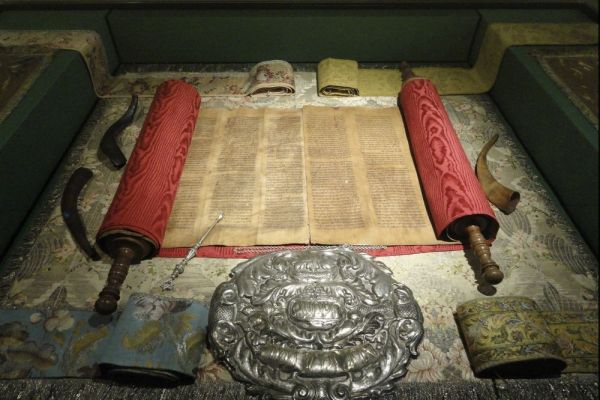(2 Cor 5:6-10)
2Corinthians 5:6 So, then, let us always be full of confidence, knowing that as long as we dwell in the body we are in exile away from the Lord,
2Corinthians 5:7 we walk in faith and not yet in vision.
2Corinthians 5:8 We are full of confidence and prefer to go into exile from the body and dwell with the Lord.
Man was created to live in communion with the Lord. It is not just a spiritual communion, but a communion of the whole man, of his body and soul. Man was called to dwell with God, in his garden. Because of sin we are as in exile, we are far from the Lord. Not spiritually speaking, for spiritually this cannot happen for a Christian, being a temple of the Holy Spirit. We are far from the Lord with the body. The mind, the spirit, the heart, the soul taste God; they feel him. The senses, on the other hand, are not. They are far from God, because they do not see him, they do not hear him, they do not contemplate him; they do not taste his beauty.
This exile is not man's calling; exile is the fruit of sin and its consequence. This exile must come to an end. Paul's 'confidence' stems from the fact that the exile is momentary, transitory. God will usher us back into his eternal abode and we will be with him forever.
Our condition is that we 'walk in faith and not yet in vision'. We must wait for the glory of heaven by faith. Man must not see the glory of heaven, he must instead believe that it exists and that it is his highest good. But why must we walk in faith and not in vision? For if man walked in vision he would have no relationship with God; he would do a thing because he sees it; he would do it because of himself he would judge it to be good or not good. He would be the principle of discernment, of truth, of good and evil, of his present and his future. God would only be the end point, the end of everything.
Instead, God wants to be the beginning; he wants to be placed at the beginning of the journey through a relationship of faith. God asks man to trust Him. The relationship with God must be based on a relationship of transcendence, of welcoming the One who comes to us through the Word. He places his Word at the beginning of our journey and with it shows us the way.
Then Paul tells us something huge. "We are full of trust and prefer to go into exile from the body": it means to die! We know that as long as we dwell in the body we are in exile away from the Lord, and so Paul prefers to go into exile from the body and be with the Lord, rather than live in exile from the Lord and dwell in his body.
This does not mean, however, that he regards the body as something unimportant, or something from which we can free ourselves whenever we wish. Even the departure of the soul from the body is an exile, therefore a suffering, a forced departure, a compulsion. The soul is made to inhabit the body and the body is made to be inhabited by the soul. So much so that we speak of an incarnate soul and an animate body. Paul may prefer to go into exile from the body because this too is a momentary, transient exile; one leaves the body for a short time and meanwhile lives in the eternal joy of heaven together with God.
While enjoying eternal joy, one awaits the return to the body, one awaits the resurrection. If this trust were not there, Paul, like every other man, would have become attached to earthly life and would not have left it even for a moment.
When one lacks trust in the Word of God, one has a very sad view of death. Either one lives it as a return to nothingness, in which case living one day more or one day less is of no value to man, especially if this extra day must be lived in suffering and pain. Or one experiences it with despair, as something that comes to rob us of our most cherished possession - so one does everything one can to remain even a minute longer on this earth.
From this view of death arise many wrong attitudes of man and many sins. Just think of euthanasia.
Life, on the other hand, is love, gift, communion, solidarity, sharing, service, availability. The value of life is this. That life which is sacrificed to love has value; it is given to God so that he may make it an instrument of good and service to good. In this vision of faith, however, there is a moment in which one must untie the sails and depart; one departs in faith and in full trust of the resurrection. It starts with the truth that death is an exile for us, which the Lord will bring to an end on the last day.
Love for the Lord, the desire to be with him gives comfort and relief in this exile; hope makes us live it according to truth; truth makes us live it in the hope of the resurrection.
Argentino Quintavalle, author of the books
- Revelation - exegetical commentary
- The Apostle Paul and the Judaizers - Law or Gospel?Jesus Christ true God and true Man in the Trinitarian mystery
Jesus' prophetic discourse (Matthew 24-25)
All generations will call me blessed
Catholics and Protestants compared - In defence of the faith
(Buyable on Amazon)




